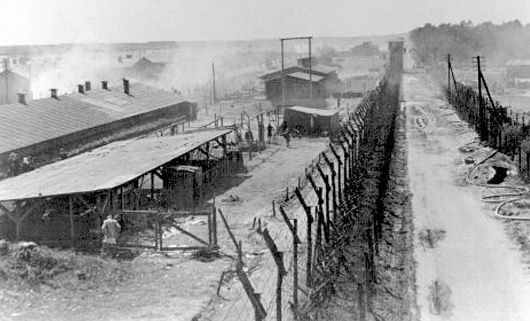Young adult holocaust literature


Christen Hughes
Dr. Perry
EDR 441
26 February 2016
Day
Wiesel, Elie. Day. New York: Hill and Wang, 2006. Print.
Day by Elie Wiesel is a Holocaust-genre novel set in New York City, and is the third part of a trilogy that begins with Wiesel’s most famous novel, Night. Originally titled The Accident, the book is about a Holocaust survivor and journalist named Eliezer who ponders whether life is worth living at all after the Holocaust. The story begins when Eliezer and his lover, Kathleen, are debating on which movie they should go see in Times Square. They both suggest a different movie, with Kathleen’s suggestion being shown across the busy streets in Time Square. Eliezer gave into Kathleen’s choice, and as they attempted to cross the street Eliezer was struck by a taxi. That was the accident that started it all. The rest of the novel depicts the ten weeks Eliezer spent in the hospital recovering from his injuries. When Eliezer is in the hospital he recounts the jarring stories from his childhood while under Nazi control. He suffers from guilt when he describes the stories because some of his closest family members were killed by the Nazis, and he is living a comfortable life in New York. He often suggests that he is dead along with the other six million Jews who were killed. The prevalent themes/motifs included in Day are survival, death, companionship, and guilt.
Eliezer chronicles horrific stories about his time during the Holocaust the very first conscious moment he has in the hospital. In Disturbing the Universe: Power and Repression in Young Adult Literature, Roberta Seelinger Trites argues that “both acceptance and awareness serve in the power/knowledge dynamic to render the adolescent both powerless in [his] fear of death and empowered by acknowledging its power” (119). The scenes in the hospital are the very first time Eliezer comes to terms with what his past was like, and the amount of death it entailed. When realizing the power death has over him, Eliezer implies that death “tortures not the executioners but their victims” (34). Readers can infer from this statement that the protagonist comes to the realization that death has taken control over him, and his psychological state has significantly changed because of it. He is no longer able accentuate the care-free personality he had before the accident because of the memories it has triggered.
Eliezer shows signs of metacognition towards the end of his hospital stay when he realizes he can no longer continue to think critically about his past. The narrator concludes by admitting, “Victory over death should give birth to happiness” (104). He realizes that death has consumed him longer than his stay in the hospital, and in order to further his relationship with Kathleen, he must let go of everything. Sharon Stringer confirms this argument in Conflict and Connection: The Psychology of Young Adult Literature when she states that people who suffer difficult passages in life and work hard trying to resolve the effects “reach a more complete sense of self” (48). Eliezer realizes that if he does not change his way of thinking and living his thoughts will ruin what means most to him.
Eliezer and Kathleen both show traits of Erik Erikson’s intimacy versus isolation stage. They are involved in a romantic relationship that stems from sexual desire. At the beginning of their relationship they possess signs of abstinence porn, but shortly move away from the meaning when the accident happens, in which their relationship takes a slight turn. Eliezer’s hospital stay forces Kathleen to become lonely and noticeably absent in the novel. Kathleen is showing what Stringer describes as “complex emotions while [she] deals with the psychological aspects of [a] committed relationship” (83). Kathleen has always had her Eliezer by her side to confide her own problems in, so when he is physically and mentally unavailable, she strays towards someone else.
More by Elie Wiesel
Night (1958)
Dawn (1960)
The Town Beyond the Wall (1962)
The Gates of the Forest (1964)
The Jews of Silence (1966)
Legends of our Time (1968)
A Beggar in Jerusalem (1968)
One Generation After (1970)
Souls on Fire (1972)
The Oath (1970)
Ani Maamin (1973)
Zalmen, or the Madness of God (1978)
Messengers of God (1975)
A Jew Today (1978)
Four Hasidic Masters (1978)
The Trial of God (1979)
The Testament (1980)
Five Biblical Portraits (1981)
Somewhere A Master (1982)
The Golem (1983)
The Fifth Son (1983)
Against Silence (1985)
The Oslo Address (1986)
Twilight (1987)
The Six Days of Destruction (1988)
A Journey into Faith (1990)
From the Kingdom of Memory (1990)
Sages and Dreamers (1991)
The Forgotten (1989)
A Passover Haggadah (1966)
All Rivers Run to the Sea (1994)
Memoir in Two Voices (1997)
King Solomon and His Magic Ring (1999)
And the Sea Is Never Still (1998)
The Judges (1999)
Conversations with Elie Wiesel (1991)
Wise Men and their Tales (2000)
The Time of the Uprooted (2003)